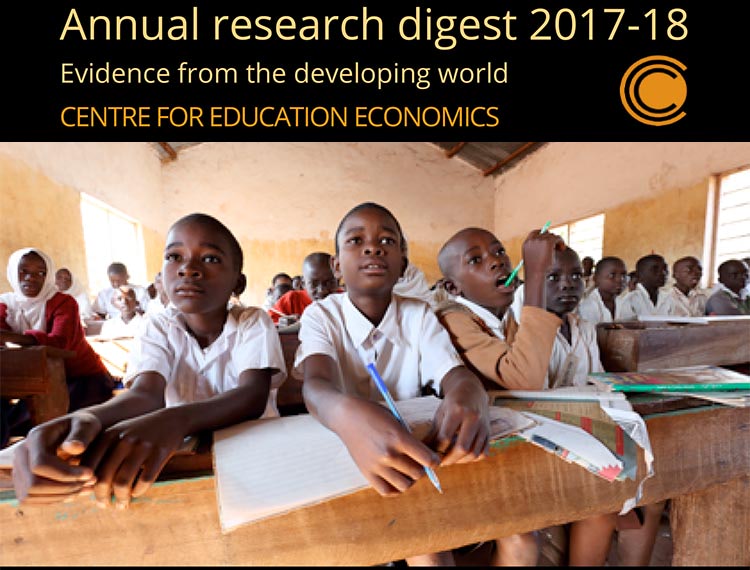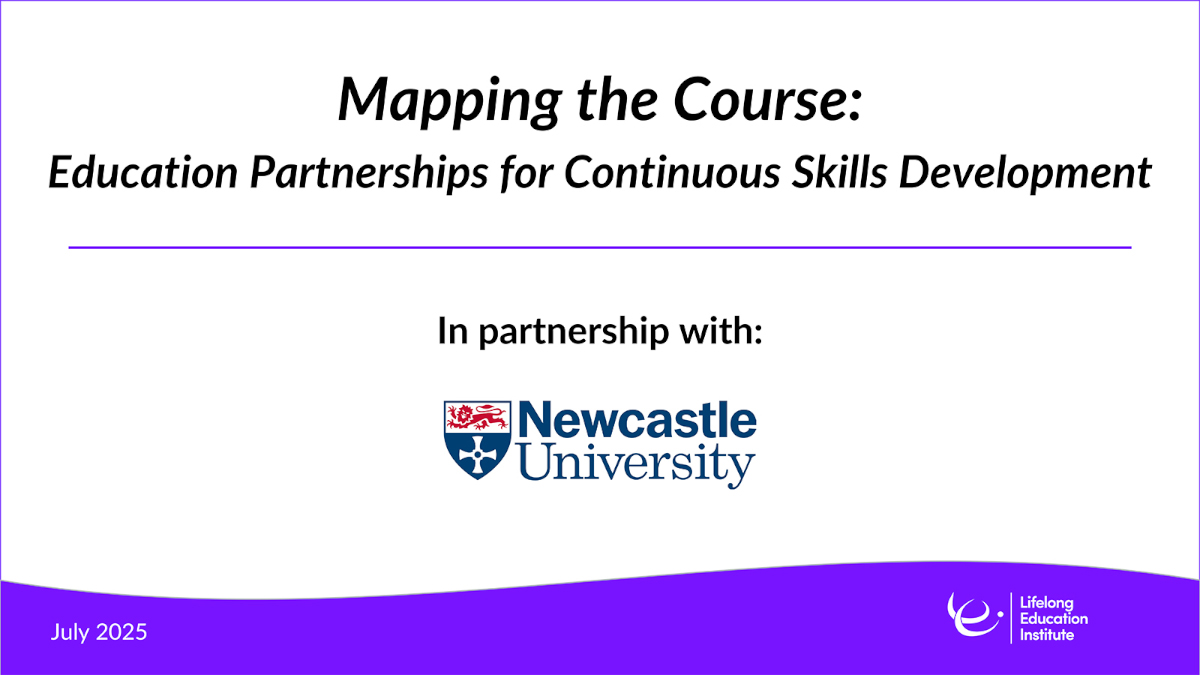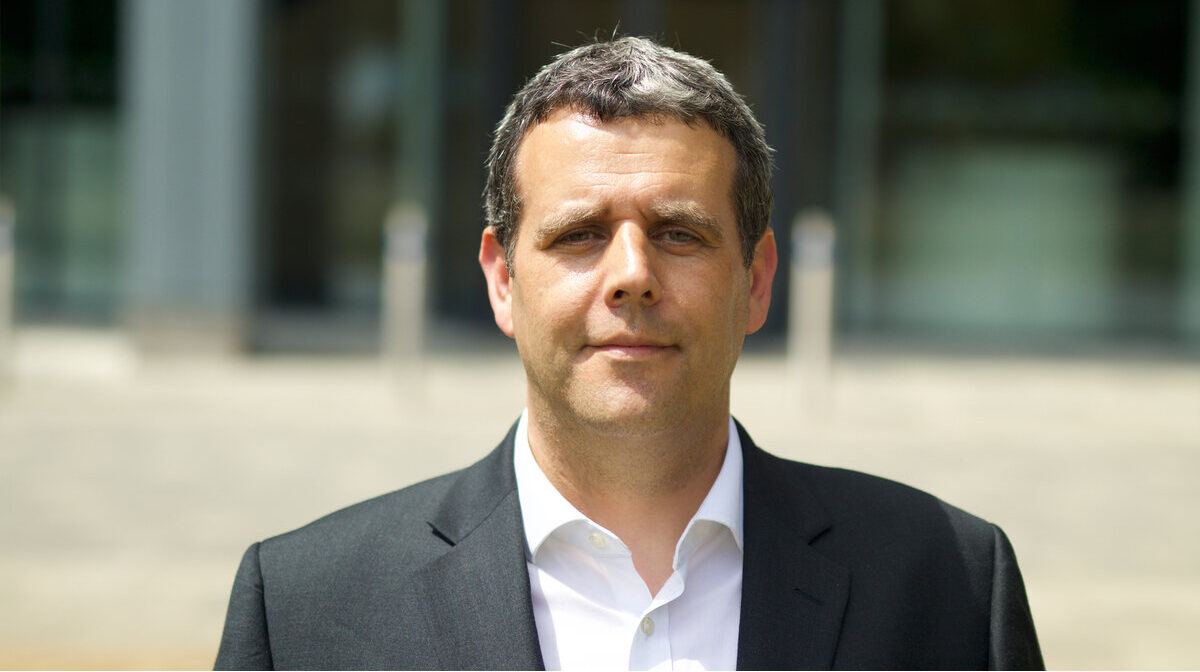The state of education provision across the developing world

“Developing” countries (those below the $12,000 per capita income threshold for rich countries) make up 36 per cent of the world economy, but 83 per cent of world population, and 87 per cent of the world’s school pupils. Identifying and tackling the matrix of factors that contribute to the massive waste of human and social capital implicit in these figures is one of the great reform challenges of our times.
In this year’s CfEE Annual Research Digest, edited by CfEE fellow Lee Crawfurd (strategic advisor to the Tony Blair Institute for Global Change), leading thinkers on global education highlight the scale and intractability of the global learning crisis and where reform initiatives have brought benefits.
Taking into its purview the state of education provision across developing countries from Asia, to Africa, and South America, the volume offers descriptive analyses; causal studies investigating large-scale system reforms and new pedagogical approaches; and, going beyond test scores, studies of the effects of schools on socialisation and social mobility.
- Taking Indonesia, the fourth most populous country in the world, as his example, RISE director Lant Pritchett shows that despite 15 years of concerted effort to improve teaching and learning, and a tripling of spending, progress in schools has stalled, and at shockingly low attainment levels.
- In an inversion of what we hope for, Jishnu Das, Lead Economist at the World Bank, reports on a recent World Bank study that finds parental background persisting over student test scores as the better predictor of university attendance in Pakistan.
Highlighting positive results arising from a number of policy experiments and new learnning strategies,
- Aidan Eyakuze, director of leading African think tank “Twaweza”, examining the Tanzanian government’s “Big Results Now” high-stakes accountability reform, finds test score improvement despite some gaming of the new performance tables
- Celeste Carano and Nomtha Sithole distil the results of a World Bank meta-study identifying the key features of impactful professional training programmes
- Barbara Bruns discusses two papers on the Kenyan ministry’s effective use of research evidence to design and scale-up a major, multi-pronged reform of early grade literacy teaching
- Susannah Hares, global education director at the Center for Global Development, discusses a study of a school desegregation intervention in India that positively changed the behaviour of wealthier pupils towards their less wealthy peers.
Contents
’15 years of education in Indonesia: rising enrolment and flat learning profiles’ – Amanda Beatty, Emilie Berkhout, Luhur Bima, Thomas Coen, Menno Pradhan, and Daniel Suryadarma, Commentary by Lant Pritchett
‘Accountability and school performance: evidence from “Big Results Now” in Tanzania’ – Jacobus Cilliers, Isaac Mbiti, and Andrew Zeitlin, Commentary by Aidan Eyakuze
‘Parental preferences and government delivery in Tanzanian primary schools’ – Andrew Zeitlin and Sam Solomon, Commentary by Aidan Eyakuze
‘Teacher professional development around the world: the gap between evidence and practice’ – Anna Popova, David Evans, Mary E. Breeding, and Violeta Arancibia, Commentary by Celeste Carano and Nomtha Sithole
‘Identifying the essential ingredients to literacy and numeracy improvement: teacher professional development and coaching, student textbooks, and structured teachers’ guides’
– Benjamin Piper, Stephanie Simmons Zuilkowski, Margaret Dubeck, Evelyn Jepkemei, and Simon J. King, Commentary by Barbara Bruns
‘Scaling up successfully: lessons from Kenya’s Tusome national literacy program’ – Benjamin Piper, Joseph Destefano, Esther M. Kinyanjui, and Salome Ong’ele, Commentary by Barbara Bruns
‘Fair progress? Economic mobility across generations around the world’ – Ambar Narayan, Roy Van der Weide, Alexandru Cojocaru, Christoph Lakner, Silvia Redaelli, Daniel Gerszon Mahler, Rakesh Gupta N. Ramasubbaiah, and Stefan Thewissen, Commentary by Jishnu Das
‘Familiarity does not breed contempt: generosity, discrimination and diversity in Delhi schools’– Gautam Rao, Commentary by Susannah Hares
Editor Lee Crawfurd says:
“This is a fantastic set of papers from some of the top economists in the field. As such, it serves as both a useful introduction to some of the key issues facing global education, and an informed take on a selection of the more robust and most promising economic and other research papers emerging from developing world contexts at this time.”
About Lee Crawfurd: A Strategic Advisor with the Ministry of Education in Rwanda and the Tony Blair Institute for Global Change, and a PhD candidate in economics at the University of Sussex. Lee has worked on global development and education policy as a researcher, consultant, and civil servant for the past ten years. He has published peer-reviewed articles in the Journal of African Economies and Development Policy Review writes a popular blog “Roving bandit“.











Responses